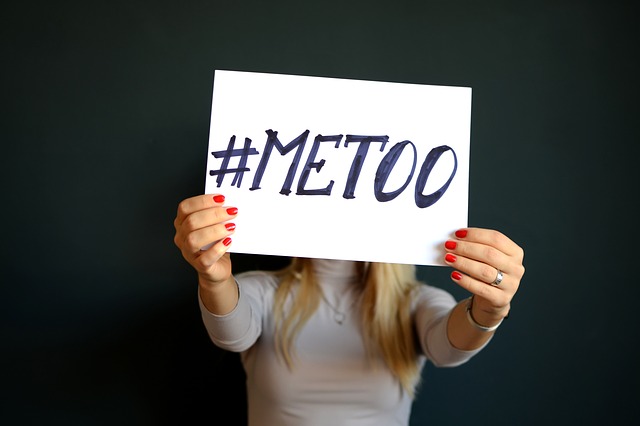Sexual harassment has garnered more public attention worldwide thanks to the #MeToo movement and similar efforts, but it remains a pervasive and problematic issue.
When someone is the victim of any kind of sexual abuse, it can affect them not only in the workplace but throughout other areas of their life. For example, common reactions to sexual abuse can include post-traumatic stress disorder, alcohol misuse or drug dependency, and self-injury or self-harm behaviors.
Recognizing the signs of sexual harassment in the workplace can prevent further sexual abuse, can make a healthier workplace for everyone, and can help you know what to do if you believe you are a victim.
Table of Contents
What Is Sexual Harassment?
While you may have a general idea of what sexual harassment is, you may not know the many forms it can take, particularly in the workplace.
First, sexual harassment at work doesn’t just have to come from a supervisor. It can come from coworkers, customers, and clients. Sexual harassment can include unwanted touching, jokes, or comments that are inappropriate or someone promising you a promotion or advancement in your career if you engage in sexual favors.
Sexual harassment doesn’t even have to be overtly sexual.
It can also include stereotyping people, bullying someone based on their sexual orientation or gender identity, or being the target of jokes because of your gender identity or sex.
Some of the many examples of sexual harassment can include:
- Inappropriate comments about your physical appearance or body
- Using gender or orientation-based slurs
- Making fun of all people of a certain gender or sexual orientation
- Making crude sexual jokes, even if the joke isn’t aimed specifically directed at you
- Sharing sexual texts or emails, or photos
- Making jokes about someone’s sex life
- Inappropriate or unwanted touching of any part of your body, clothing or hair
- Making sexual gestures
- Sharing or sending pornography
- Blocking someone from moving
Even if someone doesn’t realize what they’re doing is harassment, if it’s something offensive and unwanted, it can still be characterized as harassment.
If you don’t say something at the moment, it is also still considered harassment.
Sexual Harassment Laws
There are laws at the federal and state level that prohibit sexual harassment in the workplace. Federal laws apply only to employers with 15 or more employees, but many state laws provide more coverage for smaller workplaces.
Under Title VII of the Civil Rights Act of 1964, as an example, it’s illegal for employers to allow anyone to be sexually harassed at work.
Sexual harassment doesn’t have to be about desire, either. Sexual harassment is often about power, so just because a straight man is harassing another straight man as an example, it is still harassment.
Employers are accountable for providing a harassment-free workplace, and rather than federal laws making it illegal for someone to sexually harass someone else, they make it illegal for employers to allow it or fail to stop it when they are aware.
It’s illegal for anyone to seek retaliation against you for reporting sexual harassment as well.
Retaliation can include being fired or demoted, being assigned to work at a different time or position, receiving different duties, or a reduction in pay or benefits.
High-Risk Situations
Certain types of jobs and positions can be more high-risk in terms of sexual harassment. These can include:
- Jobs where you work alone. This might mean hotel workers, domestic care workers, and cleaning positions. In these roles, women often work without witnesses around them so they may be more vulnerable and feel that they have nowhere to turn.
- Working in male-dominated fields. This might include very physical workplaces or the military.
- Roles where there is a big gap in power. If there are workplaces where there are significant power imbalances between lower positions and senior positions, sexual harassment may be more likely. This can be especially true if there are employees who earn a lot more than other employees or have a certain level of prestige, and they don’t feel like rules apply to them.
Know Your Rights
Along with knowing more about what sexual harassment is and the different ways it can look, you should be empowered by knowing your rights. You have the right to work in an environment that’s safe and free from discrimination.
You have the right to know what your employer’s sexual harassment policies are and in California, this goes even further. California state law requires that every employer has a written harassment policy and it everyone should get a copy of it.
If you are experiencing or witnessing sexual harassment, talk to your employers. Report it to your boss, HR, or someone in a position of power in your workplace.
It’s a good rule of thumb to report harassment in writing, which can include an email or a written letter. Keep a copy of it in case you take legal action at any point
It’s a legal requirement that your employer takes complaints regarding harassment seriously, and these complaints should be investigated. According to the law, as soon as your employer becomes aware of a situation that could involve sexual harassment, they are required to take fast action to stop it and protect you or the person being harassed.
You can file charges with a government entity like the Equal Employment Opportunity Commission (EEOC), and your employer can’t take retaliatory action against you for doing that.
If you’ve filed a charge with the EEOC, you can receive a Right-to-Sue notice. There are pretty stringent guidelines as far as how long you have to file a suit after you receive that.
If you believe harassment is going on in your workplace, you might want to speak to an experienced lawyer to determine the best next steps, learn more about your rights, and protect yourself against potential retaliation.
While sexual harassment in the workplace can be a difficult topic to discuss, as more people are comfortable coming forward, it’s helping others who might not have otherwise even recognized they were the victims of harassment.



















